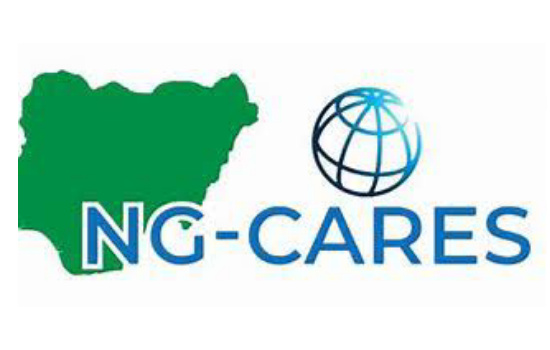By Tony Obiechina, Abuja
35 states of the Federation and the Federal Capital Territory (FCT) have been reimbursed a total sum of $420.48 million (equivalent to N210 billion Naira) for their participation in the Nigeria COVID-19 Action Recovery and Economic Stimulus (NG-CARES) programme.
NG-CARES was designed to address broader challenges beyond the immediate impact of the pandemic. Its interventions cover shocks such as flooding, natural disasters, and the effects of economic policies that could trigger social unrest and exacerbate poverty.
The reimbursement was made following two independent assessments. The amount represents 56 percent of the program’s total credit of $750 million as of December 31st, 2023.
Speaking at the inauguration of the Federal CARES Steering Committee (FCSC) by the Minister of Budget and Economic Development, Alhaji Abubakar Bagudu in Abuja, National Coordinator of the Federal Cares Support Unit (FCSU), Abdulkarim Obaje, highlighted the programme’s state-led design, which focuses on three key areas: social transfer and livelihood, agriculture, and support for small and medium enterprises (SMEs).
To ensure transparency and accountability, independent verification exercises were conducted by Steiglers Services, revealing the positive impact of the programme across all states and the FCT.
With the exception of Imo state, which faced challenges in providing verifiable results, all states have received reimbursements based on their performance.
Recognizing the effectiveness of the programme, the World Bank has granted a no-objection for additional advances to interested states and the FCT. This demonstrates confidence in NG-CARES’ ability to help communities recover from economic shocks and improve livelihoods.
To accommodate delays in programme initiation in some states, the closing date has been extended by 12 months to June 30th, 2024. This extension allows states extra time to achieve their goals and maximize the programme’s benefits.
To encourage knowledge sharing and the adoption of best practices, NG-CARES promotes peer learning and experience sharing among states. The Nigeria Governors Forum (NGF) Secretariat facilitates this exchange of ideas to ensure that all states benefit from each other’s successes.
The programme incorporates a multi-layered monitoring and evaluation system to safeguard its integrity. This includes third-party monitors from civil society organizations and NGOs, routine oversight by the Federal CARES Steering Committee and Technical Committee, and continuous support from the FCSU and the World Bank.
To ensure the lasting impact of NG-CARES beyond its lifespan, the programme is exploring several initiatives. These include enhancing the sustainability of state shock response mechanisms through continuous training and funding, renaming the program to “Nigeria Community Action for Recovery and Economic Stimulus (NG-CARES)” to reflect its focus on community resilience, and reactivating the Federal CARES Steering Committee to adapt to changes in government personnel and align with the programme’s evolution.
Additionally, in-depth impact assessments will be conducted to document results, learn valuable lessons, and inform future interventions. Study tours, capacity building programmes, and welfare initiatives for key stakeholders will be organized, while advocacy efforts will be intensified to educate state officials about the programme’s framework and its benefits for vulnerable populations. READ ALSO:
- Governor Okpebholo Holds Steady Advantage as Edo Election Tribunal Progresses
- FAAC shares N1.424trn December revenue to FG, states, LGs
- Tinubu Commends Nigerian Governors For Supporting Tax Reform
- Tax Reform Bills: Zacch Adedeji, The Man Of Steel
- Breaking The Cycle: How Nigeria’s Economy Shapes Democracy
Peer learning and experience sharing across states will also be revitalized through the NGF, and the support and commitment of current state governors will be mobilized to fund NG-CARES activities under the appropriate mechanism.
In his address, World Bank representative, Lire Ersado emphasized the programme’s state-owned nature and the World Bank’s role as an incentive provider. He praised NG-CARES’ adaptability in catering to the diverse needs of each state and its ability to address challenges such as natural disasters and policy effects.
Moving forward, Mr. Ersado reiterated the World Bank’s commitment to providing additional support and technical assistance to build upon NG-CARES’ achievements and expand its reach in the future.


